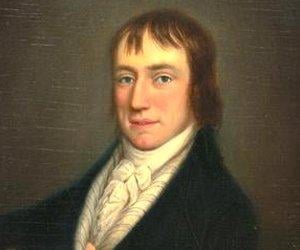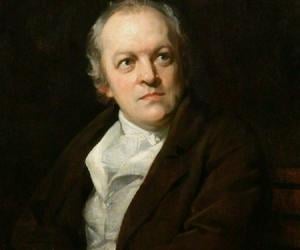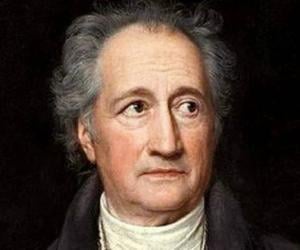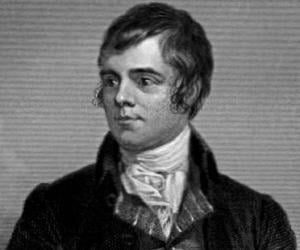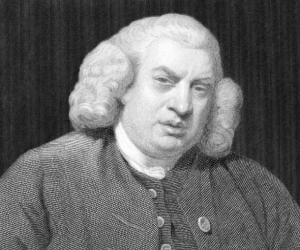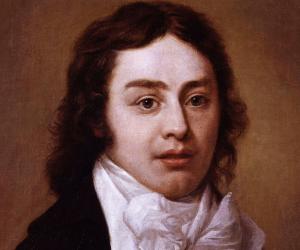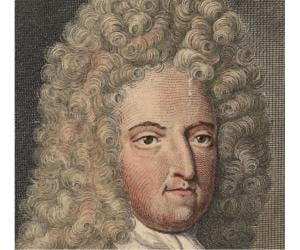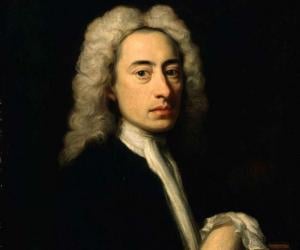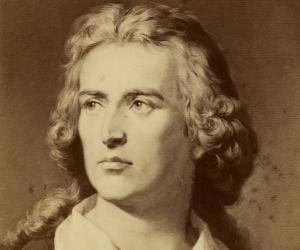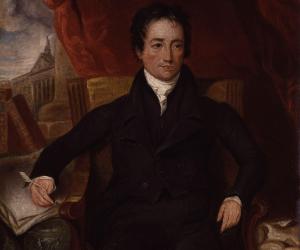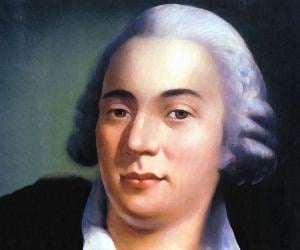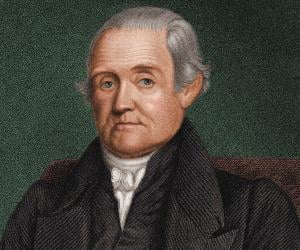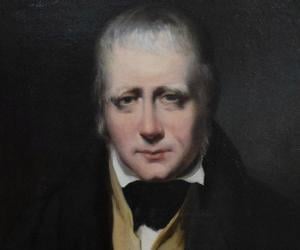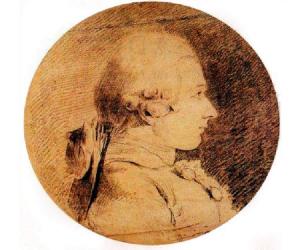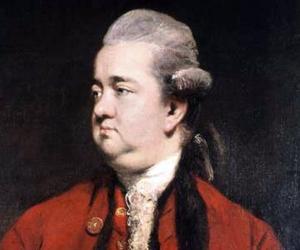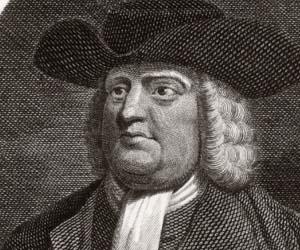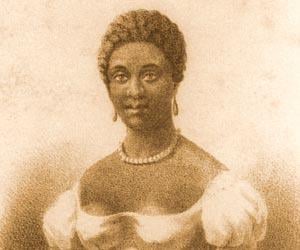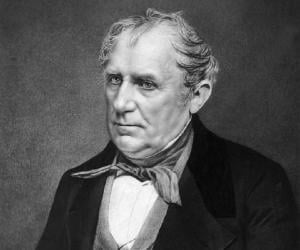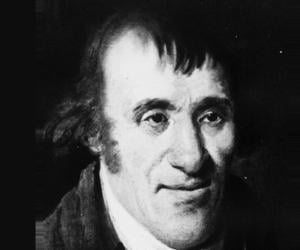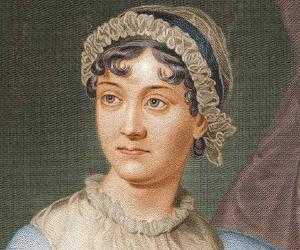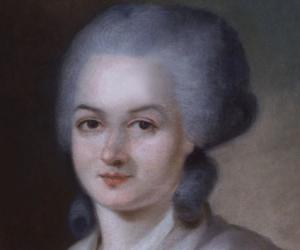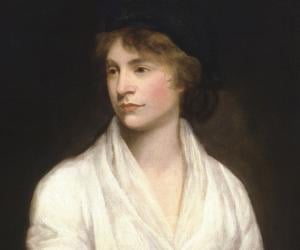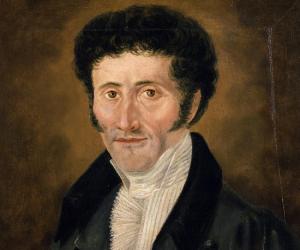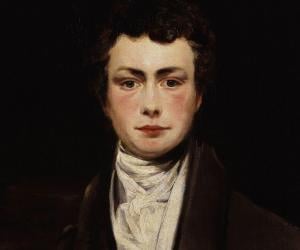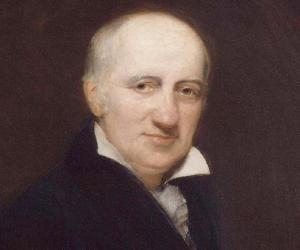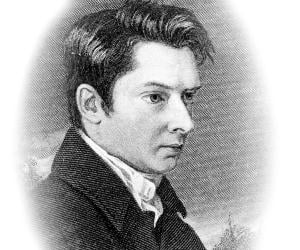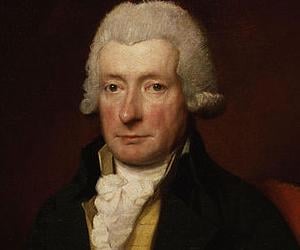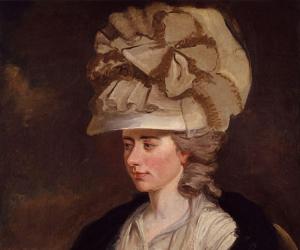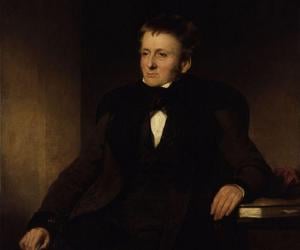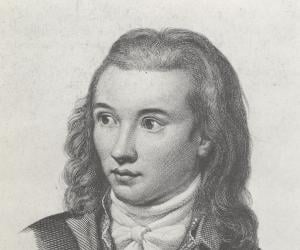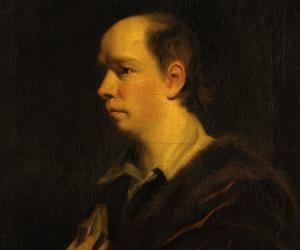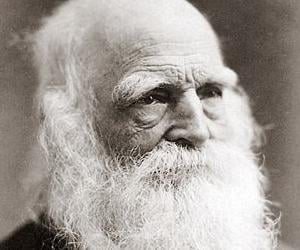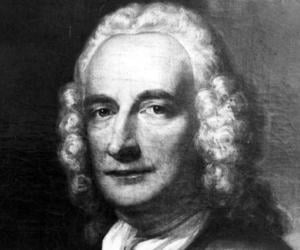English poet William Wordsworth, along with Samuel Taylor Coleridge, released Lyrical Ballads in 1798, which set the tone for the Romantic Age of English Literature. Wordsworth was known for his poems I Wandered Lonely as a Cloud, The Prelude, and The Solitary Reaper. He also served as the Poet Laureate.
Regarded as the greatest literary figure in Germany's modern era, Johann Wolfgang von Goethe was a statesman and writer. Apart from writing poetry and prose, he also wrote treatises on color, anatomy, and botany. Thanks to his literary genius, Goethe was made part of the Duke's privy council in Weimar and he implemented several reforms at the University of Jena.
Eighteenth-century essayist, poet, and pamphleteer Jonathan Swift is remembered for his iconic works such as A Tale of a Tub, A Modest Proposal, and Gulliver's Travels. One of the world’s greatest satirists, he gave rise to the deadpan Swiftian style. He had also been the Dean of St. Patrick's Cathedral.
Essayist, biographer, lexicographer, and literary critic Samuel Johnson, or Dr. Johnson, is remembered for his A Dictionary of the English Language and Lives of the Most Eminent English Poets. He was also a poet, a playwright, and a staunch Tory. His mannerisms indicated he had Tourette syndrome.
Samuel Coleridge was an English poet, philosopher, theologian, and literary critic. He is credited with co-founding the Romantic Movement in England along with his friend William Wordsworth. Despite struggling from bouts of depression and anxiety throughout his adult life, Samuel Coleridge had a major influence on American transcendentalism and writers like Ralph Waldo Emerson.
Alexander Pope was a satirist and poet whose works produced during the Augustan period made him one of the greatest artistic exponents of that period. Widely regarded as one of the most important English poets of the 18th century, Alexander Pope is best remembered for writing discursive poetry and heroic couplets.
Friedrich Schiller was a German poet, physician, philosopher, playwright, and historian. Schiller is best remembered for his friendship with Johann Wolfgang von Goethe and the two discussed issues concerning aesthetics. Schiller's discussions with Goethe paved the way for a period, which came to be known as Weimar Classicism. Friedrich Schiller is also widely regarded as Germany's most prominent classical playwright.
Renowned British essayist Charles Lamb was a major figure of the Romantic period. He is best remembered for his Essays of Elia and his book of abridged versions of Shakespeare’s plays, Tales from Shakespeare, which he co-wrote with his sister, Mary. He had also once spent time in a mental facility.
Noah Webster was an American textbook pioneer, lexicographer, political writer, English-language spelling reformer, author, and editor. Dubbed the Father of American Scholarship and Education, Webster's books have been credited with teaching the art of spelling and reading to five generations of American children. Thanks to his work as a spelling reformer, his name became synonymous with dictionary in the US.
Walter Scott was a Scottish novelist, poet, historian, and playwright. Scott's ability as a writer and his knowledge of history made him a pioneering figure in the formation of the historical novel genre. An influential writer, many of his works remain classics of Scottish as well as English-language literature. Scott was admired by other prominent writers like Letitia Elizabeth Landon.
Eighteenth-century historian and author Edward Gibbon is best remembered for his 6-volume historical work The History of the Decline and Fall of the Roman Empire, a narrative that charted events from the 2nd century to the Fall of Constantinople. He had also been an MP, representing Lymington and Liskeard.
William Penn was a writer and one of the earliest members of the Quakers. He is credited with founding the Province of Pennsylvania. He also oversaw the planning and development of the city of Philadelphia. Penn has several universities and schools named in his honor, including the William Penn University in Iowa.
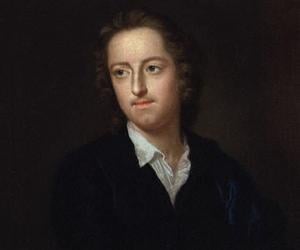
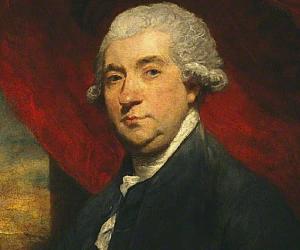
Best known for his biography of his friend Samuel Johnson, 18th-century biographer and diarist James Boswell was also a qualified lawyer. Know for his reckless lifestyle and his trysts with prostitutes, he had contracted gonorrhea and had also fathered many children, including two illegitimate ones.
As a child, Ethan Allen was fond of deciphering passages from the Bible. He grew up to co-establish Vermont and led the Green Mountain Boys during the American Revolutionary War. After failing to achieve Vermont’s separation from New York, he tried to unite Vermont with Canada.
Considered one of the greatest writers in English history, Jane Austen is best known for her six major novels - Sense and Sensibility, Pride and Prejudice, Mansfield Park, Emma, Persuasion and Northanger Abbey. Her writing was set among the British landed gentry and dealt with ordinary people in everyday ordinary situation. The author achieved great fame after her death.
Olympe de Gouges was an 18th-century French playwright and political activist. Her writings on women's rights and abolitionism were popular in various countries. She was an outspoken advocate against the slave trade in the French colonies. She demanded that French women be given the same rights as French men. She was executed during the Reign of Terror.
Mary Wollstonecraft was an English writer, advocate of women's rights, and philosopher. Wollstonecraft, who attracted a lot of attention for her unconventional personal relationships, is widely considered a founding feminist philosopher. Although her unorthodoxy initially attracted criticisms, her advocacy of women's equality became increasingly important during the 20th century. Modern-day feminists cite her works and her life as important influences.
E. T. A. Hoffmann was a German author, jurist, artist, composer, and music critic. His stories served as an inspiration and laid the foundation for The Tales of Hoffmann by Jacques Offenbach. The Nutcracker by Pyotr Ilyich Tchaikovsky is also based on Hoffmann's The Nutcracker and the Mouse King. Hoffmann is among the most influential authors of the Romantic Movement.
Irish author Thomas Moore was chiefly branded a Whig ally. It is believed he had a role in burning the memoirs of his friend Lord Byron, an act now considered a literary crime. His iconic Irish Melodies contained his most popular works, such as The Last Rose of Summer.
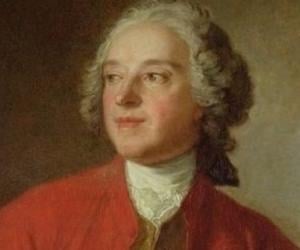
Pierre-Augustin Caron de Beaumarchais was a French polymath who had worked as a watchmaker, playwright, musician, financier, and diplomat. He was also an inventor and revolutionary. He was much respected in French society and held influence in the court of King Louis XV. He supported American independence and actively participated in the early stages of the 1789 French Revolution.
English essayist and critic William Hazlitt is remembered for his characteristic humanism in his works. Initially aspiring to be a painter, he traveled to Paris but later deviated to philosophy and metaphysics. Though he penned iconic works such as The Spirit of the Age, he spent his later life in oblivion.
Essayist Thomas De Quincey is best remembered for his iconic book Confessions of an English Opium-Eater, which initially appeared in the London Magazine. The work was an autobiographical account of his own addiction to opium, which he had begun consuming to help him deal with the pain of his facial neuralgia.
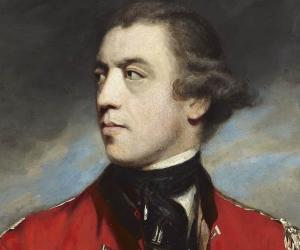
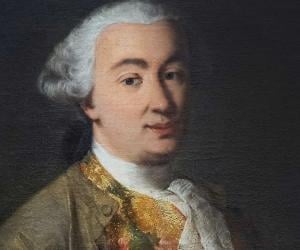
Carlo Goldoni was an Italian librettist and playwright from the Republic of Venice. He is credited with producing some of Italy's best-loved and most famous plays. His plays are often admired for their ingenious mix of honesty and wit. One of his most famous works, Servant of Two Masters, has been translated into many languages.
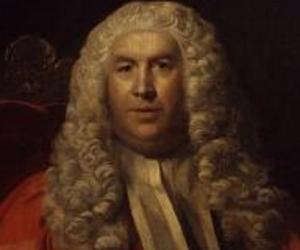
William Blackstone was a British politician, jurist, and judge of the 18th century. Best remembered for authoring the Commentaries on the Laws of England, Blackstone is credited with influencing prominent American personalities like Abraham Lincoln, James Kent, Alexander Hamilton, and John Marshall among others. His Commentaries, which were cited often in Supreme Court cases, were repeatedly republished throughout the 1770s.

Poet and philosopher Friedrich Leopold, better known as Novalis, was a significant figure of German Romanticism. He narrated the loss of his 15-year-old fiancé to tuberculosis in his Hymns to the Night. He himself died of the disease a few years later. He was also well-versed in natural sciences.
Oliver Goldsmith was an Anglo-Irish novelist, poet, and playwright. Described by his contemporaries as a disorganized and impetuous person, Goldsmith is best remembered for his works, such as The Vicar of Wakefield, The Deserted Village, and She Stoops to Conquer. A respected writer, Goldsmith's statue has been erected in several places, including the Trinity College, Dublin.
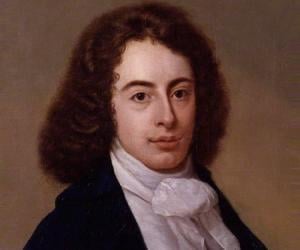
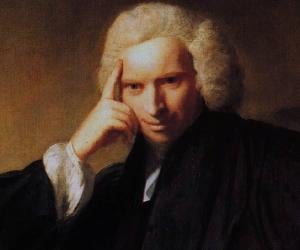
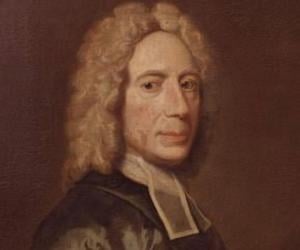
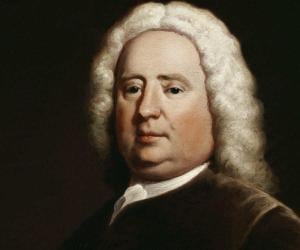
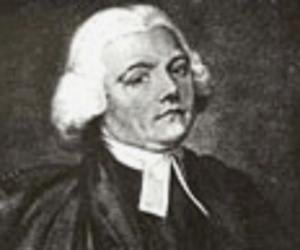
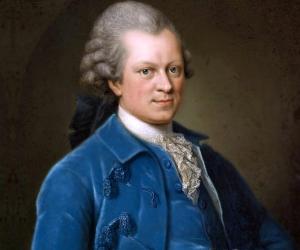
Gotthold Ephraim Lessing was a noted German dramatist, critic, and author, remembered especially for his contribution towards liberating German theatre from the influence of its classical and French counterpart. Known for such literary masterpieces like Miss Sara Sampson; Emilia Galotti; Minna von Barnhelm; Nathan the Wise; Laocoön; Hamburg Dramaturgy, he is now considered an outstanding representative of the Enlightenment era.
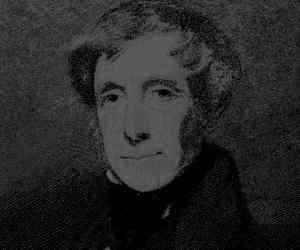
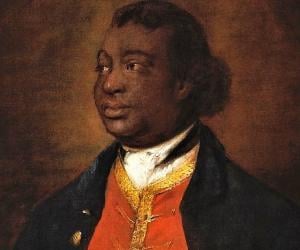
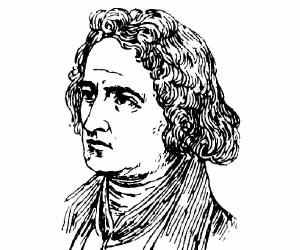
Wilhelm Grimm was a German anthropologist and author. He is best remembered as one half of the popular literary duo, the Brothers Grimm. Along with his elder brother Jacob Grimm, Wilhelm published a collection of fairy tales in 1812. It was later translated into English and came to be known as Grimms' Fairy Tales.
